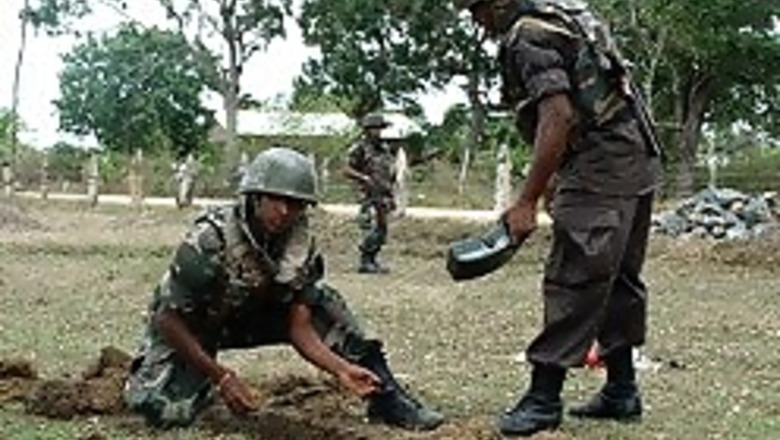
views
Colombo: The Sri Lankan government denied on Wednesday having agreed to hold unconditional peace talks with Tamil Tiger rebels, as announced by international mediators.
The denial poured cold water on hopes that the two sides would resume peace talks next month, although diplomats said it was not necessarily the final word from the government or President Mahinda Rajapakse.
"The Government of Sri Lanka is highly disturbed with regard to the statement made by the Norwegian facilitator, as the government neither agreed for unconditional talks nor was consulted," it said in a statement.
The country's main donors, the international community and the public "have been misled", the statement said. Analysts said the army appeared keen to press home recent military advances before the onset of monsoon rains next month and was reluctant to silence its guns immediately.
"Things are going well for the government and the defence establishment strongly feels military operations should continue," said Jehan Perera of the National Peace Council.
"My guess is that the government is going to continue with military operations up to a point where the cost of such operations, politically and militarily, becomes too high."
The Liberation Tigers of Tamil Eelam (LTTE) pulled out of peace talks indefinitely in April and a new bout of fighting erupted in late July, killing hundreds of troops, civilians and rebels in the worst violence since a 2002 ceasefire.
Both sides have launched offensives since then, although the tide appeared to be turning in the army's favour. It has captured rebel territory near the strategic port of Trincomalee and says it has overrun Tiger frontline positions in the Jaffna peninsula in the far north.
Rejoice
"The defence ministry said the rebels had only agreed to talk because the war was going badly for them. The LTTE's willingness to talk now shows that it has been outgunned on the ground and overpowered by the aerial offensive of the government forces," it said in a statement.
Hopes for at least a lull in the fighting rose on Tuesday when mediators and donors announced that Colombo and the rebels had agreed to hold unconditional peace talks, and suggested the negotiations take place in Oslo in early October.
"We rejoice at the announcement conveyed by both the government and LTTE to our Norwegian facilitator that they are willing to come to talks without any conditions," Japan's peace envoy, Yasushi Akashi, told a news conference.
Speaking after talks in Brussels between the co-chairs of the Sri Lanka donors' group, Akashi said the first step would be for both sides to cease military action. Diplomats said Rajapakse himself had told Norwegian mediators last week that he was ready for unconditional talks.
But analysts said hardliners within Rajapakse's coalition may have been reluctant, suspecting the rebels of simply buying time after recent military reverses.
The Tigers are fighting for an independent homeland for minority Tamils, saying they are discriminated against by the majority Sinhalese, who dominate the government and the army.
The government has ruled out anything beyond local autonomy. Sri Lanka's military and the Tigers have each accused the other of trying to restart a two-decade civil war that has killed more than 65,000 people since 1983 and forced hundreds of thousands to flee their homes.
More than 200,000 people have sought refuge in tented camps across the Tamil-dominated north and east in the past six weeks.
















Comments
0 comment